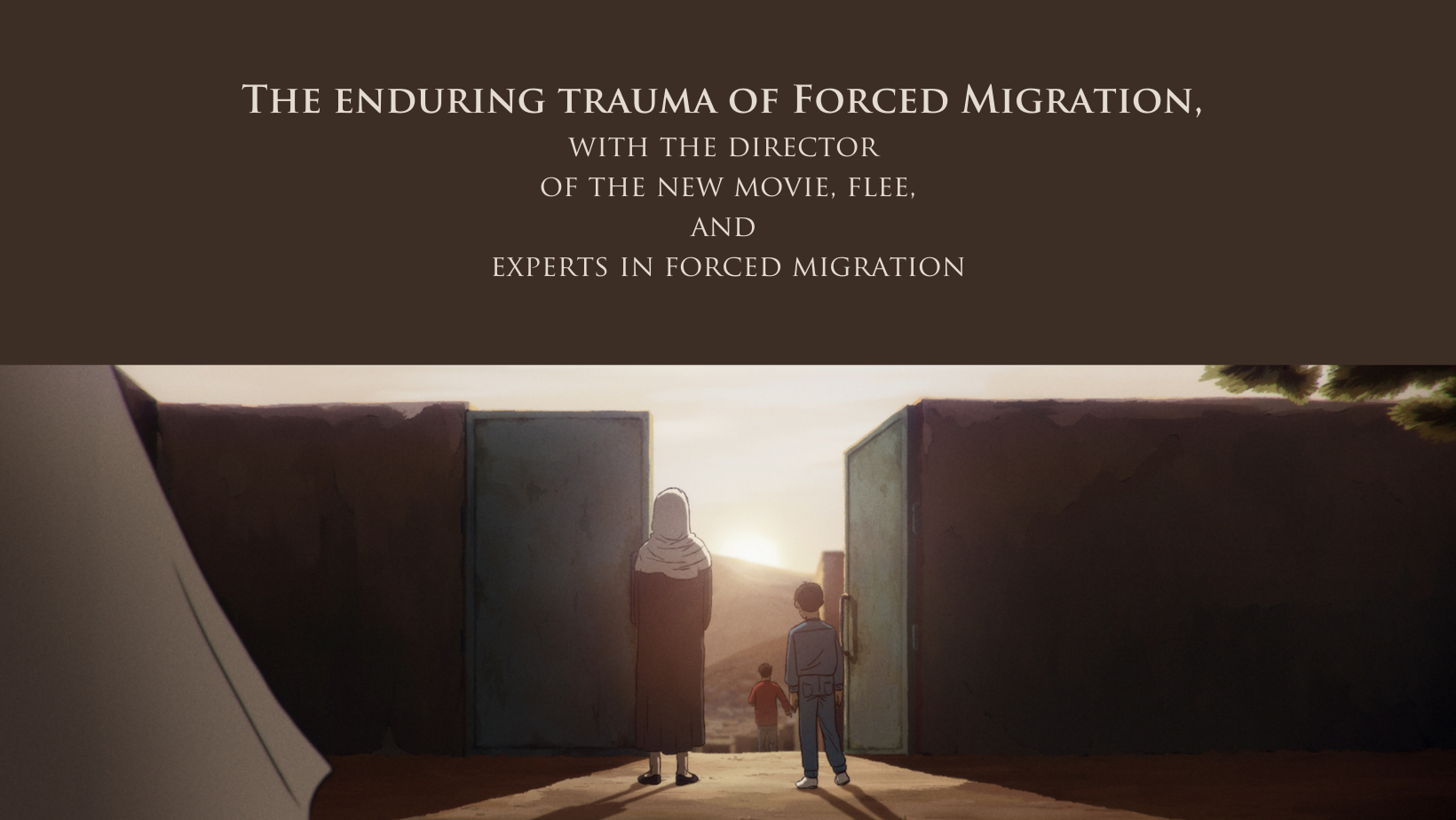Collaboratory | A Three Part Webinar Series on Afghanistan with Undergraduate Global Education
Register Here for the second in a 3-part Collaboratory series on Afghanistan.
One of the most devastating facts about the current situation in Afghanistan is that it is not new. We know this story. If we are lucky, we do not know it in the manner of Amin Nawabi; Amin Nawabi is a pseudonym for a real person, who is also the protagonist in the new, award winning documentary animation called Flee. The filmmaker, Jonas Poher Rasmussen, prods and pokes his friend Amin within the framework of the film’s story, and we are for a time inside the head of this young man who was forced as a child to flee everything he knew; to leave his home and his brother and his country; to put his life in the hands of human traffickers and end up in some foreign place, hoping to find safety.
Amin's story makes clear the toll of dispossession. There is a scene in the film in which the people fleeing are drawn as white outlines, a little blurry to show motion but also suggesting the fuzziness of boundaries. The figures are empty, ghostlike—and they could be any of us: torn from our place on the earth, we are torn from ourselves. While making evident the erosion of trust in humanity that Amin experienced, this also universalizes the story—invites us to imagine ourselves in the position of the desperate refugee, stumbling through enemy territory in a place we thought was home. The journey to safety is not necessarily about finding a hospitable host country, or a place of safety and refuge. Of course, these are critical. But they are not enough.
- How do we find a way back to ourselves after having been reduced to an object in flight?
- How do we transform these stories from ones of personal liberation and triumph into something broader, challenging the global culture?
To help answer these and other questions related to the emotional toll of forced migration, Taylor Hirschberg, a human rights activist and Hearst Endowed Scholar at the Columbia University Mailman School of Public Health moderates a webinar with the filmmaker and with esteemed experts in forced migration on February 9th, 2022.
Panelists:
Dr. Madeline Garlick: Chief of the Protection Policy and Legal Advice Section in the Division of International Protection of the Office of the United Nations High Commissioner for Refugees (UNHCR). In 2018, she served as UNHCR’s Assistant Representative for Protection in Iraq. She was responsible for UNHCR’s liaison to the EU institutions on asylum law and policy from 2004-2013. She has served with the UN Department of Peacekeeping Operations in Cyprus, and with the Commission for Real Property Claims of Refugees and Displaced Persons (CRPC) and Office of the High Representative (OHR) in Bosnia and Herzegovina.
M. Claire Greene: Psychiatric and substance use epidemiologist in the Program on Forced Migration and Health at the Columbia University Mailman School of Public Health. Her research focuses on improving the population-level impact of mental health and substance use programs in humanitarian settings by integrating methods in epidemiology, intervention evaluation, implementation science, and systems science. She is involved in research to evaluate and scale up mental health and substance use interventions among displaced populations in Latin America and Sub-Saharan Africa. In her work she collaborates with governmental and non-governmental organizations, multilateral agencies, and academic institutions.
Jonas Poher Rasmussen: A Danish/French film director born in 1981. He debuted in 2006 with the acclaimed TV documentary Something About Halfdan, followed by a series of radio documentaries from around the world. He graduated from the Danish film school Super16 in 2010. His feature film debut Searching for Bill, a mix of documentary and fiction, won him the Nordic Dox award at CPH:DOX, and the international competition prize at DocAviv. In November 2015 he premiered his documentary What He Did, which won the prestigious Fipresci (Int. Federation of Film Critics) at Thessaloniki Film Fest. 2016. His new film FLEE, an animated documentary about a close friend, was officially selected for Cannes 2020, won the Grand Jury Prize at Sundance, the best doc prize at Gothenburg and the Cristal award at Annecy among others.
Mariam Ghani: Mariam is the daughter of Afghanistan’s now exiled President Ashraf Ghani. She is known for projects that engage with places, ideas, issues and institutions over long periods of time, often as part of long-term collaborations. These include: critical, curatorial, conservation and creative work with the national film archive Afghan Films, since 2012, with support from the media archiving collective Pad.ma and a number of international art institutions; the video and performance series Performed Places, ongoing since 2006, in collaboration with choreographer Erin Ellen Kelly and composer Qasim Naqvi; and the experimental archive and discussion platform Index of the Disappeared, initiated with artist Chitra Ganesh in 2004, which has also become a vehicle for collaborations with other activists, archivists, artists, journalists, lawyers and scholars. Ghani's films have been screened at the Berlinale, Rotterdam, and her work has also been exhibited and screened at the Guggenheim, MoMA, Met Breuer and Queens Museum in New York, and the National Gallery in Washington, D.C.
Introductions by Safwan M. Masri, Executive Vice President for Global Centers and Global Engagement and Dr. Shannon Marquez, Dean of Global Engagement and Director of the Columbia University Center of Undergraduate Engagement (UGE).
